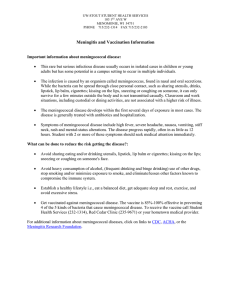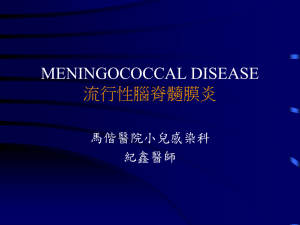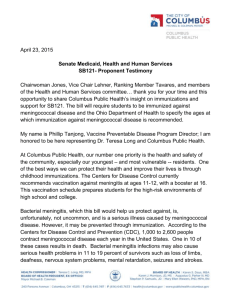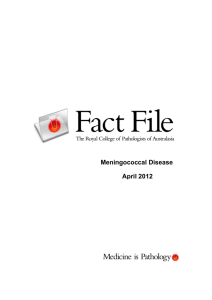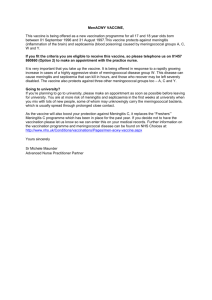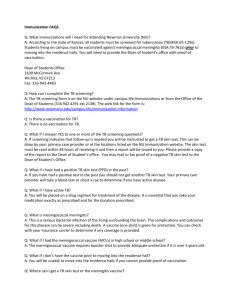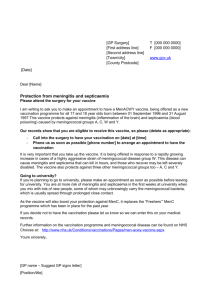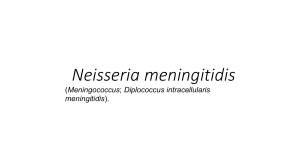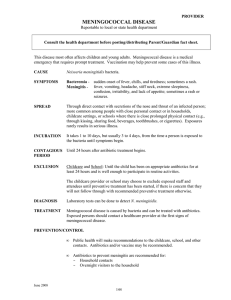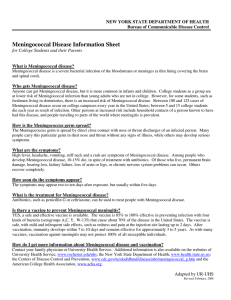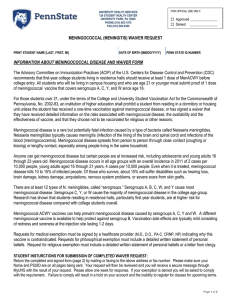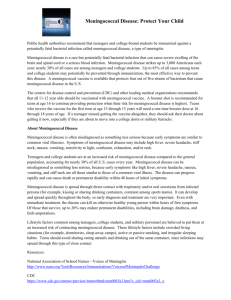Columbus County HEALTH DEPARTMENT Kimberly L. Smith, RN
advertisement
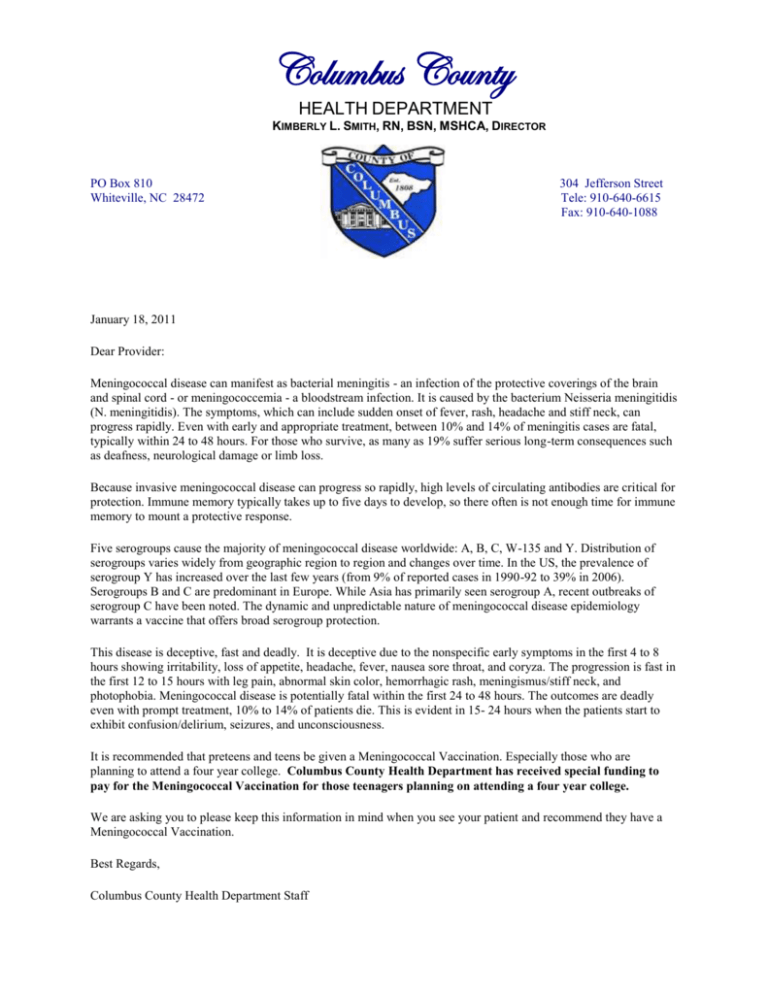
Columbus County HEALTH DEPARTMENT KIMBERLY L. SMITH, RN, BSN, MSHCA, DIRECTOR PO Box 810 Whiteville, NC 28472 304 Jefferson Street Tele: 910-640-6615 Fax: 910-640-1088 January 18, 2011 Dear Provider: Meningococcal disease can manifest as bacterial meningitis - an infection of the protective coverings of the brain and spinal cord - or meningococcemia - a bloodstream infection. It is caused by the bacterium Neisseria meningitidis (N. meningitidis). The symptoms, which can include sudden onset of fever, rash, headache and stiff neck, can progress rapidly. Even with early and appropriate treatment, between 10% and 14% of meningitis cases are fatal, typically within 24 to 48 hours. For those who survive, as many as 19% suffer serious long-term consequences such as deafness, neurological damage or limb loss. Because invasive meningococcal disease can progress so rapidly, high levels of circulating antibodies are critical for protection. Immune memory typically takes up to five days to develop, so there often is not enough time for immune memory to mount a protective response. Five serogroups cause the majority of meningococcal disease worldwide: A, B, C, W-135 and Y. Distribution of serogroups varies widely from geographic region to region and changes over time. In the US, the prevalence of serogroup Y has increased over the last few years (from 9% of reported cases in 1990-92 to 39% in 2006). Serogroups B and C are predominant in Europe. While Asia has primarily seen serogroup A, recent outbreaks of serogroup C have been noted. The dynamic and unpredictable nature of meningococcal disease epidemiology warrants a vaccine that offers broad serogroup protection. This disease is deceptive, fast and deadly. It is deceptive due to the nonspecific early symptoms in the first 4 to 8 hours showing irritability, loss of appetite, headache, fever, nausea sore throat, and coryza. The progression is fast in the first 12 to 15 hours with leg pain, abnormal skin color, hemorrhagic rash, meningismus/stiff neck, and photophobia. Meningococcal disease is potentially fatal within the first 24 to 48 hours. The outcomes are deadly even with prompt treatment, 10% to 14% of patients die. This is evident in 15- 24 hours when the patients start to exhibit confusion/delirium, seizures, and unconsciousness. It is recommended that preteens and teens be given a Meningococcal Vaccination. Especially those who are planning to attend a four year college. Columbus County Health Department has received special funding to pay for the Meningococcal Vaccination for those teenagers planning on attending a four year college. We are asking you to please keep this information in mind when you see your patient and recommend they have a Meningococcal Vaccination. Best Regards, Columbus County Health Department Staff
